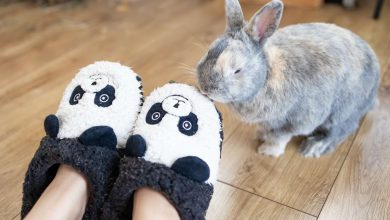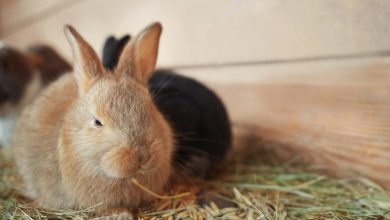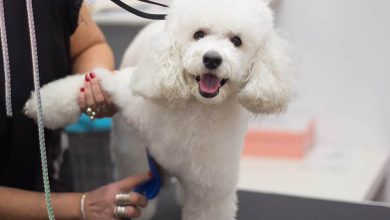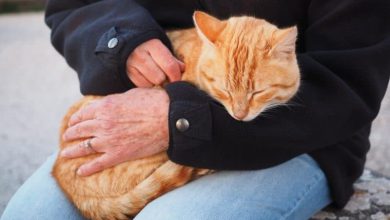Why Do Dogs Sniff Butts? Vet-Approved Facts & FAQ
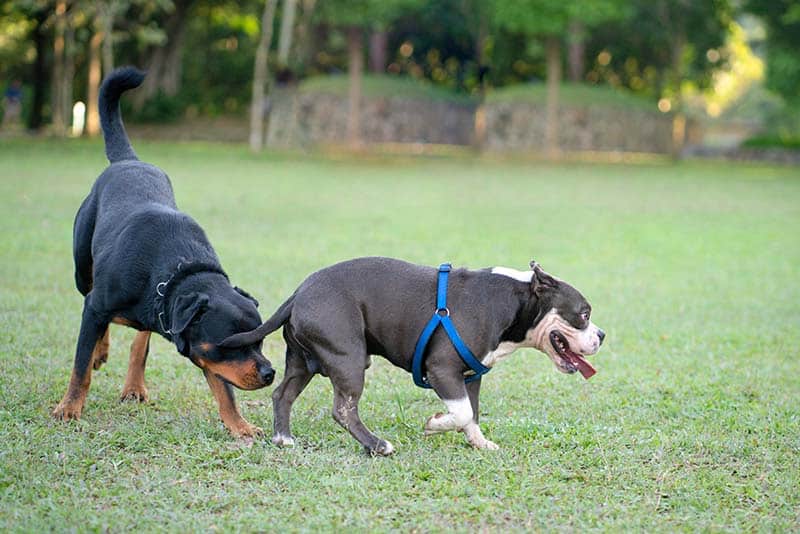
Vet-Approved by Dr. Karyn Kanowski
Ever wonder why your dog sticks their nose in another dog’s rump? This common canine greeting has left many pet parents shaking their heads in confusion or embarrassment, but it’s as normal in the dog world as a handshake or fist bump in ours. Dogs sniff butts to communicate information ranging from age and home range, to what they ate for breakfast. A dog’s sense of smell is between 10,000 and 100,000 times more powerful than ours, so while we predominantly rely on sight and sound to experience our world, dogs are more likely to sniff around to see what’s up. This is why they frequently greet each other by sniffing tails—and may like to nose around your private areas, too.
A Tail as Old As Time: How Dogs Communicate Through Sniffing Butts
While humans may greet each other with a smile and wave, dogs are likely to wag their tails and sniff butts when encountering a friend or meeting a potential one. In addition to a strong nose, dogs also possess a special sensory organ that we don’t; the Vomeronasal organ (akaJacobson’s organ) sits in the roof of their mouth and allows them to practically “taste” smells, including pheromones. This organ is also found in cats and snakes; creatures that also have a reputation for an excellent sense of smell. It sends instant signals to your dog’s brain and prompts quick responses. The vomeronasal organ plays a large role in mating as it allows them to detect reproductive pheromones. A malfunctioning vomeronasal organ may even diminish a dog’s sex drive.
You may not think much about your dog’s anal glands unless they’re emanating a foul odor, or your dog is scooting their butt on the floor. However, a healthy anal sac secretes oily pheromones that give crucial information to other dogs.
When your dog sniffs another dog’s butt, they’re receiving information about things such as:
- Age
- Health
- Sex
- Reproductive status
- Emotions/Moods
Tail sniffing also establishes dominance. In dog etiquette, it’s sniff or be sniffed. The first dog to sniff is usually considered to be dominant over the other dog; evidently confidence is important in the dog world too.
Should You Allow Dogs to Sniff Butts?
Under most circumstances, you should absolutely allow dogs to sniff each other’s butts when they come into contact with each other. Separating them before they’ve had a chance to properly sniff is like meeting a stranger and not being able to talk. It can make them feel vulnerable or even anxious, which can escalate into aggression. In fact, a lot of on-leash conflict is made worse when we don’t allow our dogs enough space to engage in butt sniffing, forcing them into an uncomfortable face-to-face confrontation before they’ve had a chance to properly get to know one another.
The only time you need to separate sniffing dogs is if they’re already showing signs of fear or aggression. You can tell a dog is trying to make friends if they’re wagging their tail in a smooth, quick motion, making eye contact, or letting their tongue hang loosely out of their mouth. A dog that’s acting aggressive usually raises their hackles and has bristled fur. Their tails are usually stiff. While they might still wag their tail, it’s not in the happy-go-lucky manner that they would use when meeting a friend. Instead, they may wave their tail in a terse motion. Their mouth might be held in a tight, closed line instead of open and floppy, or they may show their teeth with a growl.
On the other hand, a dog who feels threatened will make themselves appear smaller by lowering their tail and showing other signs of fear or submission. If either dog seems afraid or aggressive, it’s best to remove yourself from the situation before it escalates. Unfortunately, a subtle miscommunication between the dogs can lead to fighting, so it’s important to react calmly but swiftly to avoid a possible fight.
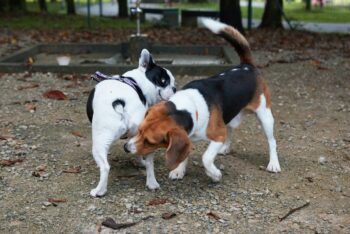
Why Does My Dog Sniff My Butt?
Our sweat glands release information about our hormones and overall health. Humans have a lot of sweat glands in the groin area, which is also coincidentally where an abundance of hormones are secreted. Since dogs predominantly assess situations through their sense of smell, they can get a little nosy in areas that have the most information.
Dogs have an eerily accurate sense of smell that can detect hormone changes in humans. They can recognize pregnancy before a test, monitor blood sugar changes, and find cancer—all thanks to their incredible nose and vomeronasal organ. It’s no wonder dogs are employed in so many fields, from canine units in police work to service dog training for people with severe diabetes.
How to Prevent Your Dog from Sniffing Your Company’s Rear End
It’s certainly an awkward situation when you walk into a friend’s house and their dog barrels into your butt. However, it feels even worse when you’re the host. If you need to let your dog know they’ve committed a social faux “paw,” try to redirect their attention instead of punishing them. After all, they’re only doing what’s natural to them.
If you want to discourage them from vigorously sniffing down guests as they walk through the door, distract them with a favorite toy, or teach them to sit down when company arrives. When they sit down, be sure to reward them with a treat.
If your dog still manages to get in a vigorous sniff, just reassure your guests that your canine pal is just saying a friendly hello, and finds them interesting. Really, it’s a compliment!
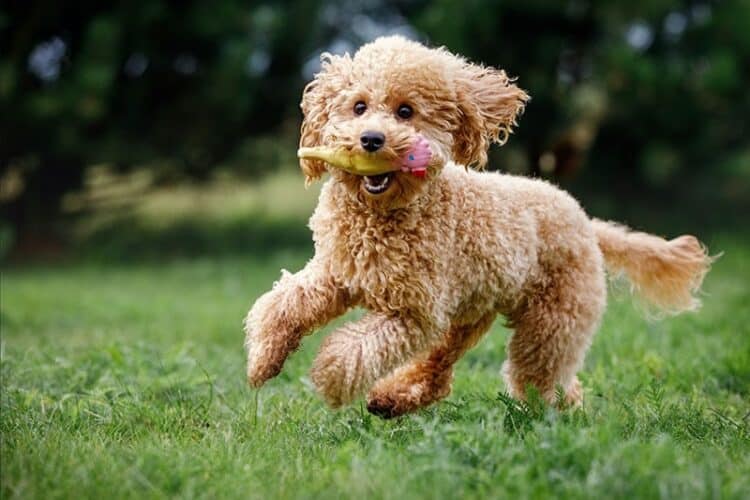
Conclusion
When dogs sniff each other’s butts, it’s usually a friendly way to ask how they’re doing and what they’re like. Dogs who’ve met before may sniff as a way to “catch up” with what’s going on with them, while dogs who are meeting for the first time may use this information to form opinions about the newcomer. Unless one of the dogs is acting aggressive or fearful, you should let your dog sniff butts so they can socially engage with other pups in a polite and healthy way. If a dog sniffs your butt, they’re likely nosing around for information about you, but you can distract them with a toy or instruct them to sit if it feels too uncomfortable.
Featured Image Credit: Sinseeho, Shutterstock
